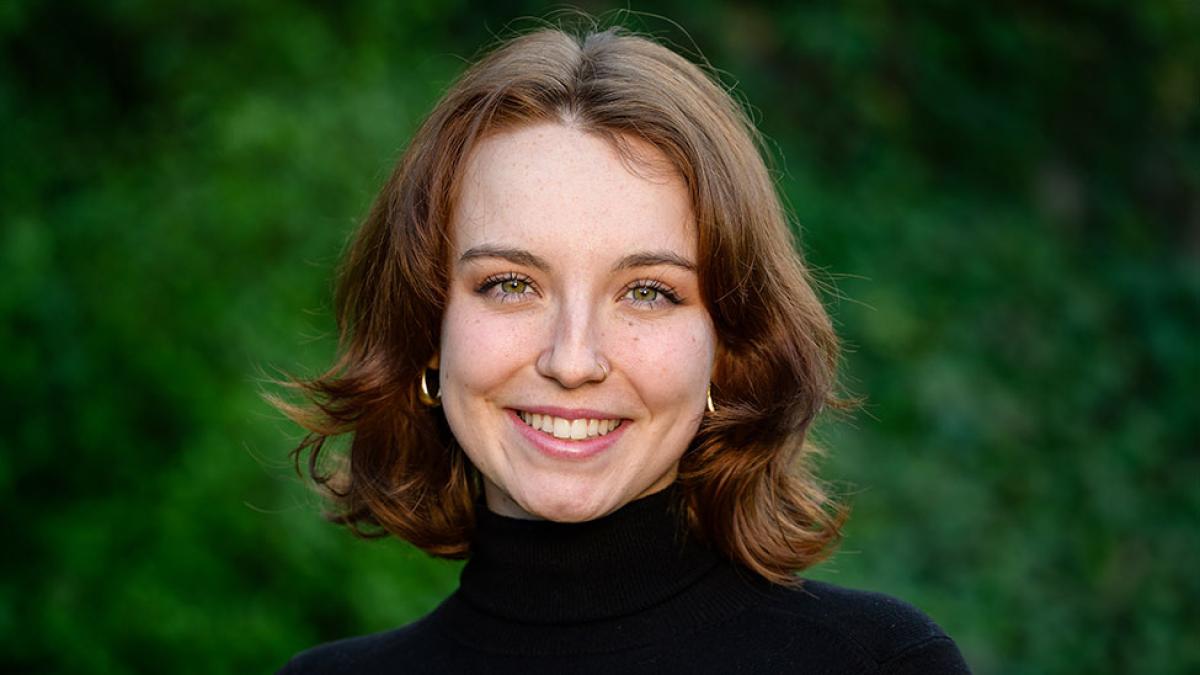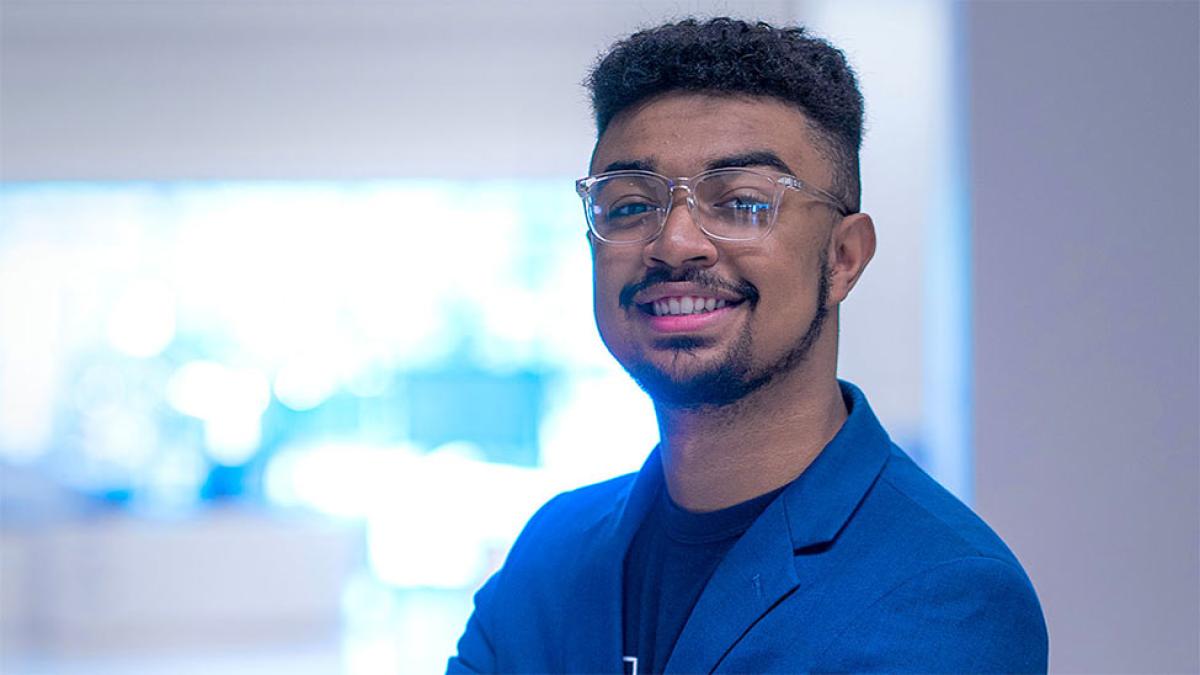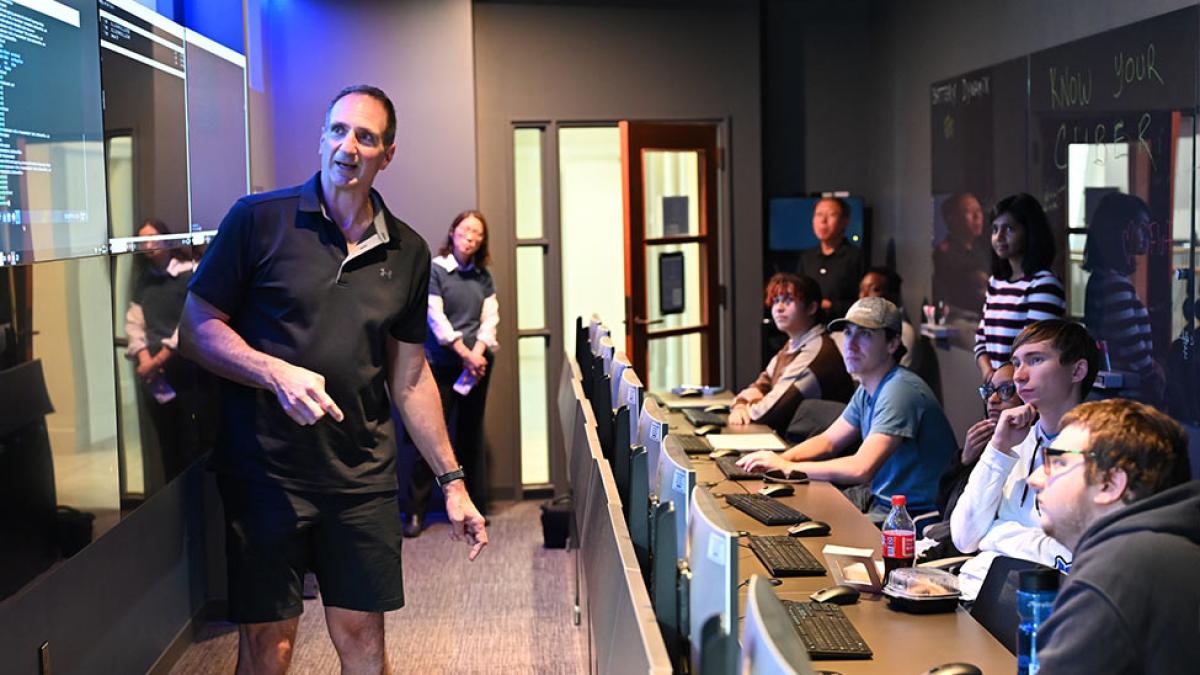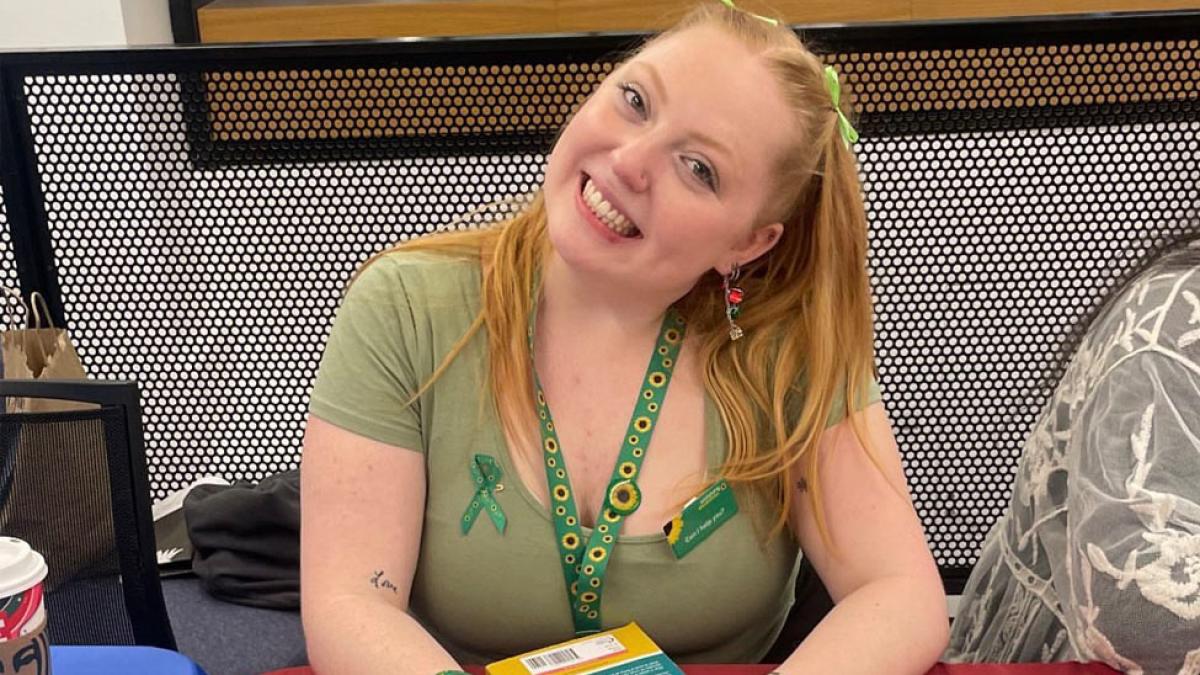Saloni Pasad has taken advantage of everything Seidenberg’s Human Centered Design program has to offer; including working with the NYC Design Factory, earning her a trip to Switzerland to explore how today's technology can provide tomorrow's food.
Ridehailing Apps and the Future of Urban Transportation
Seidenberg student Arjuman Hossain has spent the past year researching how individuals move about New York City, and the ways in which ridesharing apps have transformed the urban landscape.
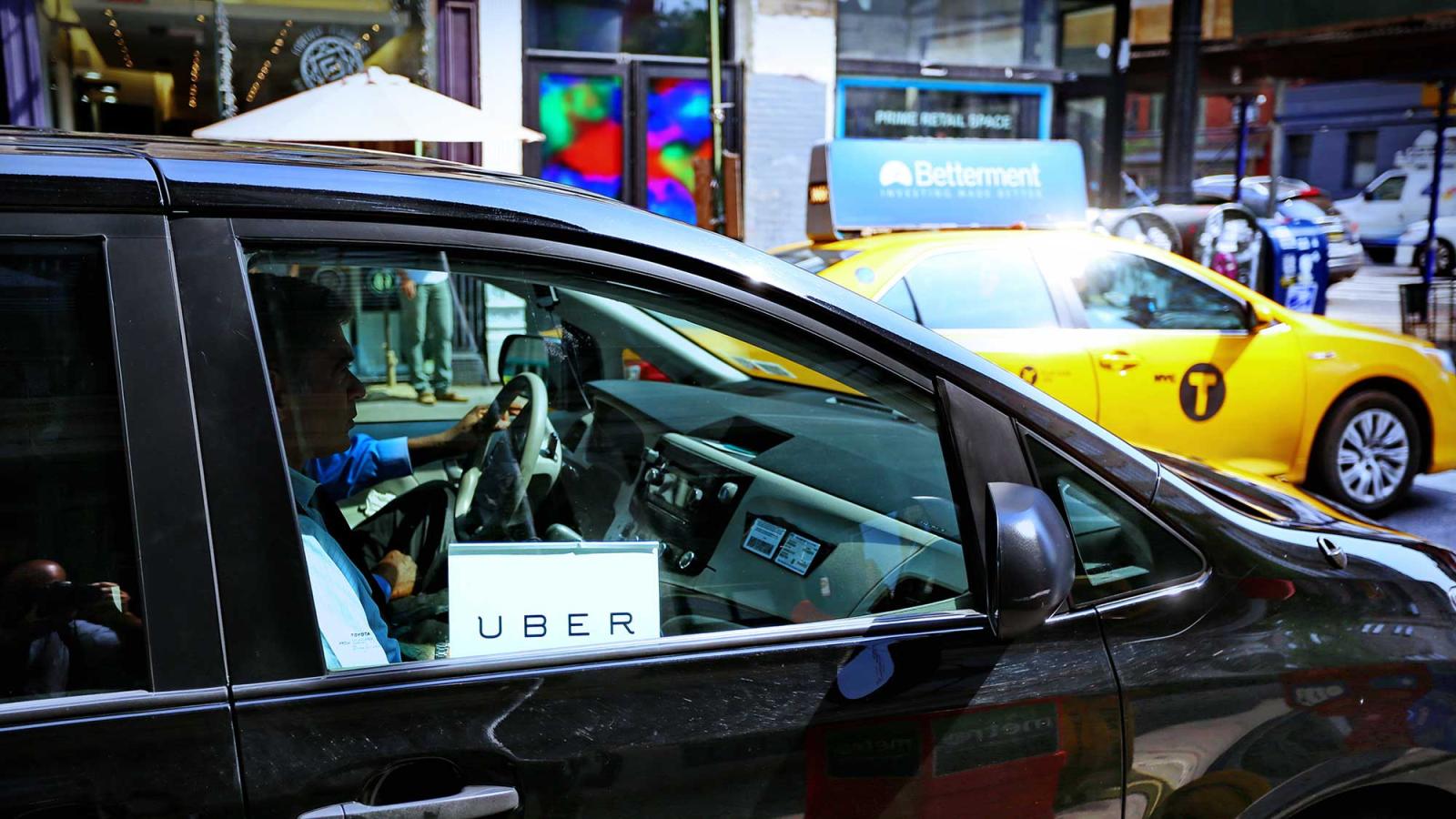
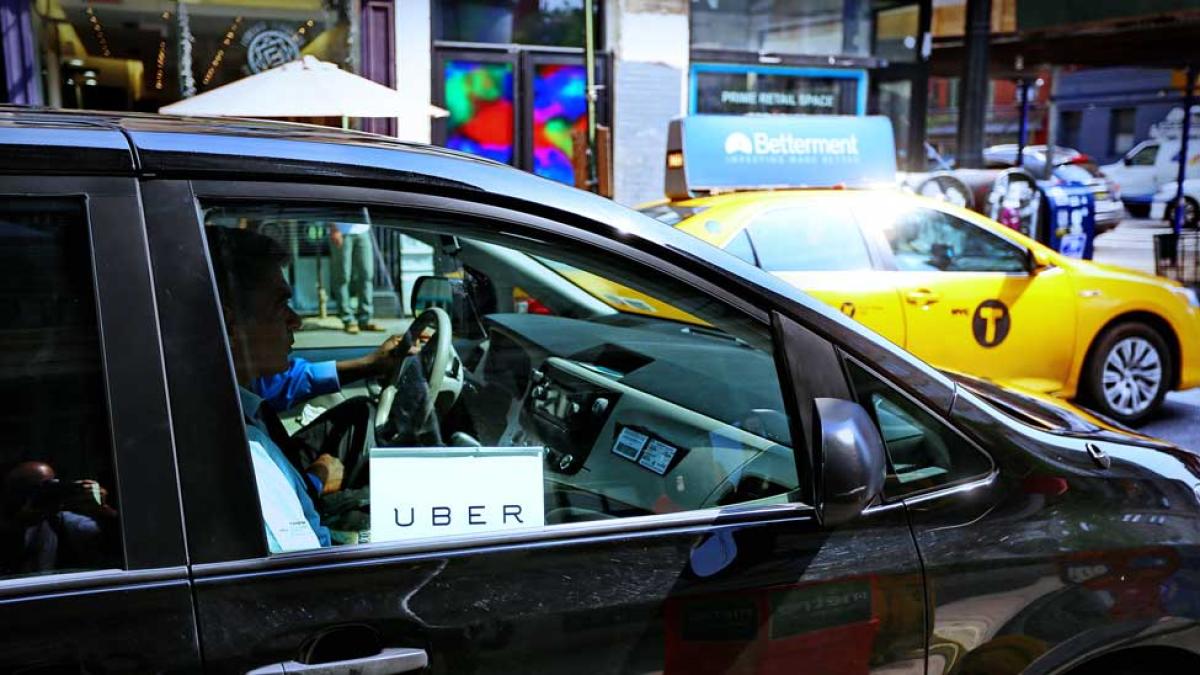
If you walked around New York City 15 years ago compared to today, you might notice some major differences in daily activity. The most obvious is that a large percentage of pedestrians are perpetually glued to the glowing rectangular device in their hand. But arguably the second most obvious change is the significant decline in pedestrians hailing the city’s famous yellow taxis—instead, we have collectively shifted to using these aforementioned rectangular devices to call upon random vehicles to serve the purpose that taxis previously dominated.
It’s no secret that ride hailing apps such as Uber and Lyft have transformed the urban landscape. This is a phenomenon that Seidenberg Information Systems major Arjuman Hossain ’25 has long been interested in—likening the massive shift to others predicated by recent technological innovations.
“One example I can give—Blockbuster declined due to the rise of Netflix,” says Arjuman. “Netflix offered a more convenient, cost-effective streaming service. And now you see streaming is a multi-billion-dollar industry. Ride-hailing apps have now become a multi-billion-dollar industry and it’s only going to increase from here.”
Blockbuster declined due to the rise of Netflix. Netflix offered a more convenient, cost-effective streaming service. And now you see streaming is a multi-billion-dollar industry. Ride-hailing apps have now become a multi-billion-dollar industry and it’s only going to increase from here.
Curious as to how ridehailing apps have changed the landscape of city life, Arjuman applied for the Provost’s Office 2023–2024 student-faculty undergraduate research award. His project, titled “Assessing the Transformative Influence of Ride-Hailing Applications on Urban Mobility Patterns,” seeks to examine the ways in which ride-hailing has affected traffic patterns and commuting behaviors, to better understand the complex problems and opportunities that have arisen with respect to integrating these platforms into the urban transportation ecosystem. Seidenberg Professor of Information Technology Catherine Dwyer, PhD, is serving as Arjuman’s mentor.
“It’s really been a pleasure working with Arjuman,” says Dwyer. “He came up with this idea, and he’s really quite mature for an undergraduate in terms of research; there are some graduate students who might have more struggles than he’s had,” she added.
Over the past few months Arjuman has been busy delving into the data. The research is solely focused on New York City currently, making use of NYC Open Data as a primary resource; from which Arjuman is synthesizing findings via the programming language Python.
“We’ve been able to generate a lot of graphs and analyze the data,” says Arjuman. “One of the things we found that was really interesting was a significant decline in yellow taxis—another thing we found was that there were many declines in urban mobility patterns, particularly during the COVID-19 pandemic. We found that ride-hailing services has bounced back more quickly compared to public transit options now that the pandemic is pretty much over.”
“One of the nice things about research is you always find something you’re not looking for,” noted Dwyer. “It’s quite disturbing to see how bad it’s been for the subways and the buses to bounce back from COVID—there’s been a lot of federal funding to keep the city processes working and that’s going to be turned off pretty soon. As a city resident I’m really concerned about not investing in mass transit and not keeping the level of service as it is. It’s very shortsighted.”
Arjuman and Dwyer are both very excited about the potential of this research, given that the nature of ride-hailing apps is still an under-examined area in relation to mobility patterns, and the information gleaned can help massively in terms of urban planning and transportation studies through defining the ways in which individual move through the city today. Arjuman and Dwyer are excited about publishing the work and presenting at academic conferences, and have been starting to plan for that process.
“I hope that when I publish my research, other researchers can use it to benefit them. That’s one of my motivations for being part of this program,” says Arjuman.
This summer, Arjuman will further his understanding of the complexities of New York City transportation, having landed an internship at New York City’s Taxi and Limousine Commission that will call on him to employ his data analytics skills. He views both the research and the internship as a natural launch pad to his ideal career—which as he notes, would be something related to public transportation.
As his body of work shows, Arjuman is well on his way to making a major impact in an increasingly important field—and hopes to help to alleviate our collective traffic and commuting headaches in the process.
More from Pace
Clandestine methamphetamine labs: they’re a growing problem and can be a nightmare for unsuspecting homeowners. Dyson Professor Karen Caldwell and student researchers such as Morgan Amos are on the case, aiming to develop practical and effective remediation solutions.
Serving as a peer leader, resident assistant, and volunteer, Psychology major Charlotte MacNeal's diverse experiences and mentorship roles have shaped her journey. With internships in MedTech and impactful research on intergenerational trauma, she credits the supportive faculty and plans to pursue a career in consulting for MedTech companies upon graduation, offering insightful advice to current students.
Pforzheimer Honors College Conference 2024
Students from the Pforzheimer Honors College will present their original research, creative work, honor theses, and innovative tech projects to the Pace Community. New York City: Monday, May 6 and Tuesday, May 7; Pleasantville: Friday, May 10.
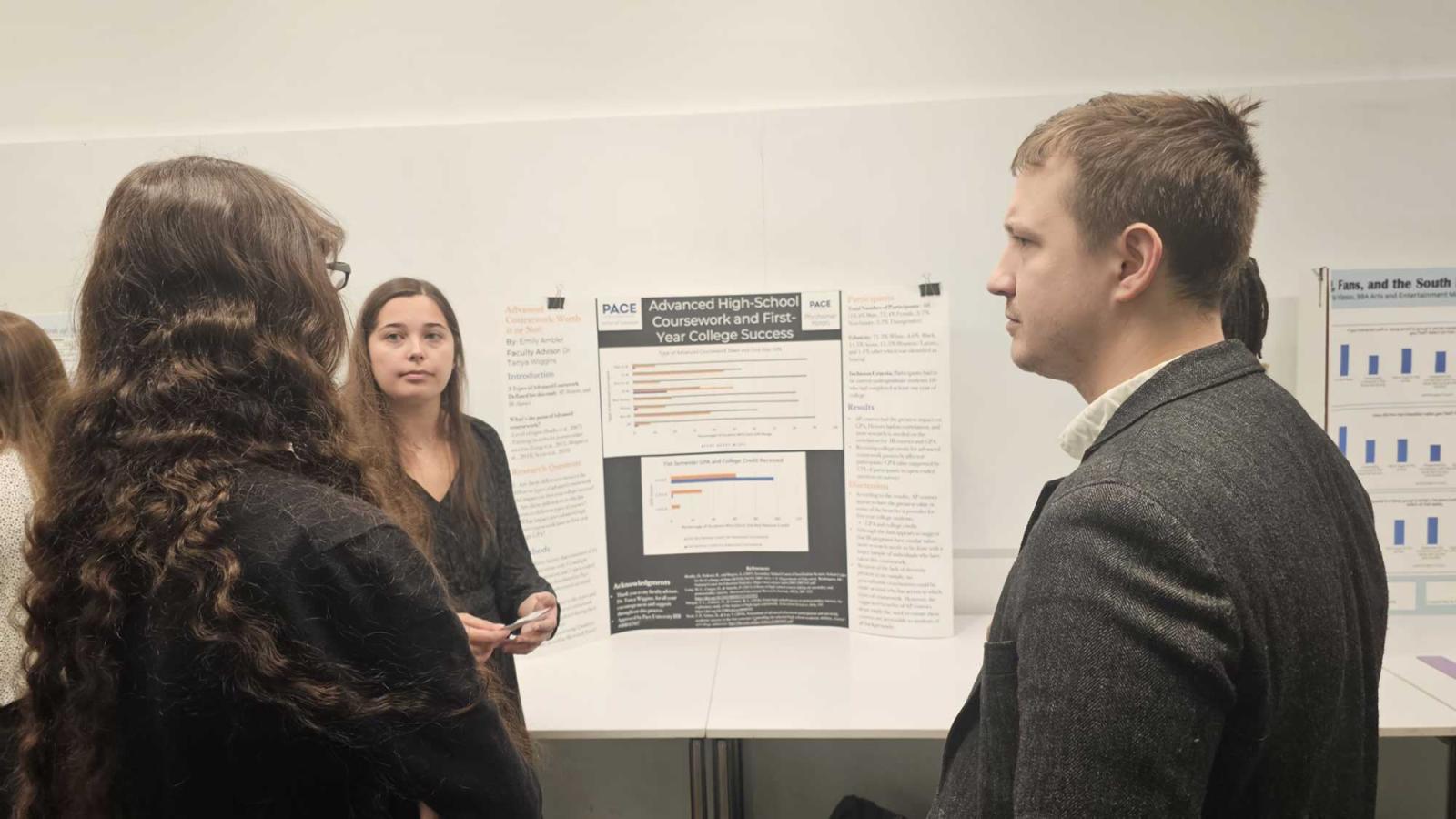
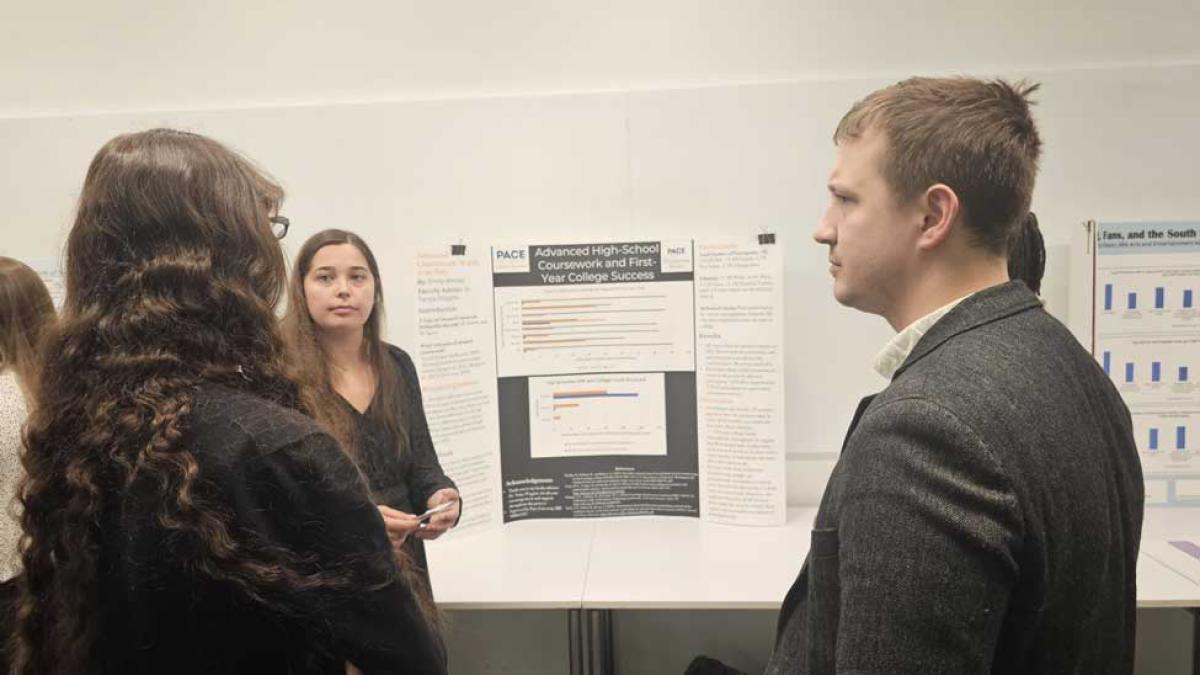
New York City: Monday, May 6 and Tuesday, May 7
Pleasantville: Friday, May 10
We invite you to join us for an immersive academic experience. Students from the Pforzheimer Honors College will present their original research, creative work, honor theses, and innovative tech projects to the Pace Community—be wowed by their work while connecting with old friends and your favorite faculty.
Fill out the RSVP from by April 24
Stay tuned for a detailed presentation schedule.
Monday, May 6 | New York City
- 9:30 a.m.–11:30 a.m.: Poster presentations | 15 Beekman, Bianco Room
- 10:00 a.m.–12:00 p.m.: Panel Presentations | One Pace Plaza, Student Center East and West
- 12:00 p.m.–1:00 p.m.: Lunch with Speakers | 15 Beekman, Bianco Room
- 1:00 p.m.–5:00 p.m.: Panel Presentations | One Pace Plaza, Student Center East and West
- 2:00 p.m.–4:00: Poster presentations | 15 Beekman, Bianco Room
Tuesday, May 7 | New York City
- 10:00 a.m.–12:00 p.m.: Creative Presentations | One Pace Plaza, Student Center East and West
- 12:00 p.m.–1:00 p.m.: Lunch with Provost Joe Franco and Student Speakers | 15 Beekman, Bianco Room
- 1:00 p.m.–3:30 p.m.: Creative Presentations | One Pace Plaza, Student Center East and West
- 3:30 p.m.–5:00 p.m.: Seidenberg Presentations with Dessert Reception | 15 Beekman, 9th Floor
Friday, May 10 | Pleasantville
- 10:00 a.m.–12:00 p.m.: Poster session | Kessel Student Center, Gottesman Room
- 12:00 p.m.–1:00 p.m.: Lunch with Provost Joe Franco and Speakers | Kessel Student Center, Multipurpose Room
- 1:00 p.m.–5:00 p.m.: Panel Presentations | Kessel Student Center, Butcher Suite
- 1:00 p.m.–5:00 p.m.: Creative Presentations | Kessel Student Center, Gottesman
Follow us for more information and updates:
Pforzheimer Honors New York City Instagram Pforzheimer Honors Pleasantville Instagram
Psychology Through a Global Lens
Psychology programs at Pace University offer students an international advantage in understanding mental health and wellness in a globalized world.

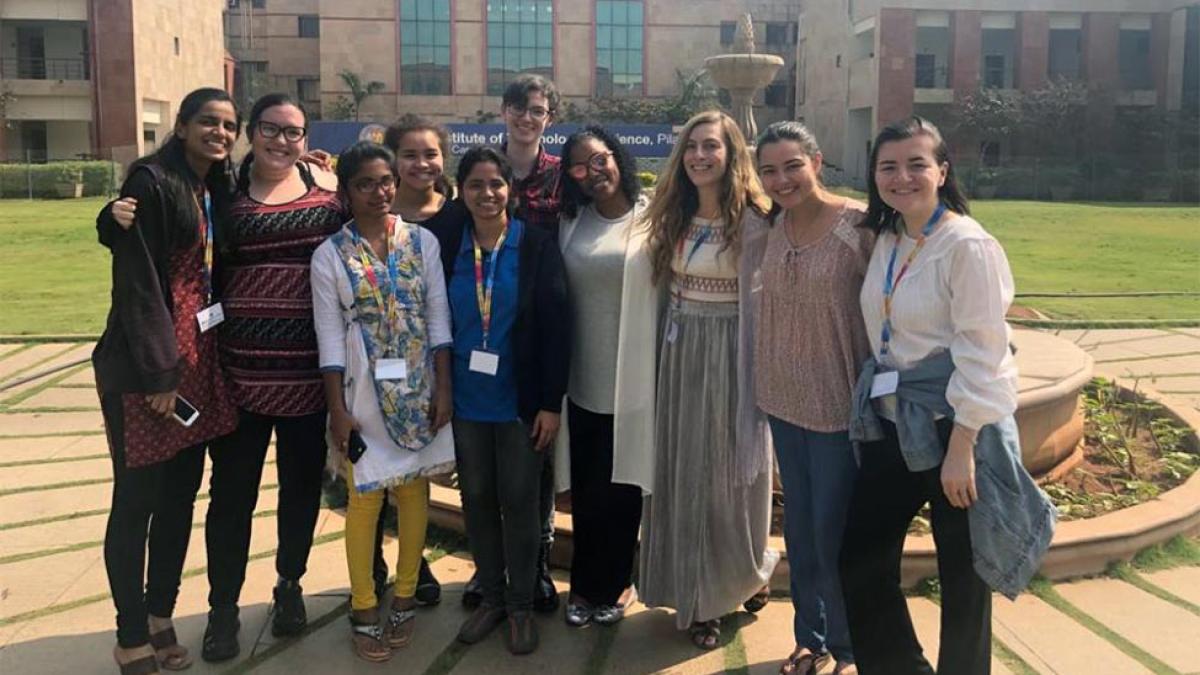
In today’s interconnected world, understanding the complexities of mental health and wellness requires a global perspective. At Pace University’s Dyson College of Arts and Sciences, students embarking on their educational journey in psychology find themselves uniquely positioned to explore the intricacies of the human mind across continents, with an unparalleled opportunity to delve into mental health research in the vibrant setting of Goa, India.
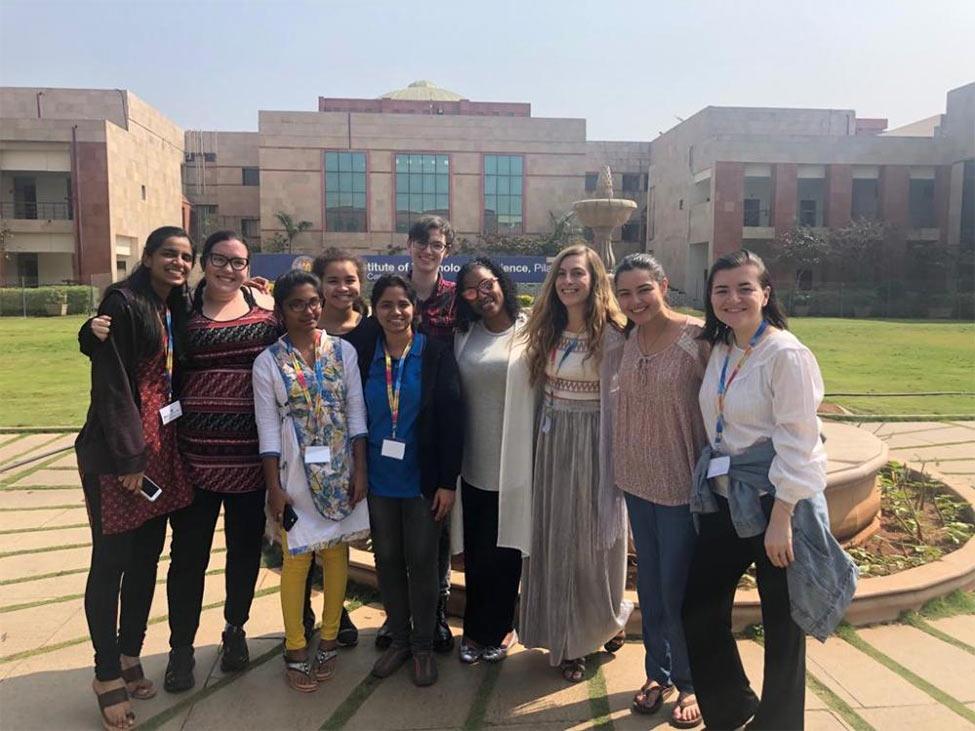
One standout course, "Understanding a Globalized World," hosted by The Birla Institute of Technology and Science (BITS) at their Goa Campus, serves as a beacon for Pace students seeking to understand the intersection of globalization and mental health. This immersive course doesn’t just scratch the surface; it delves deep into the challenges of conducting research on physical and mental health in a world that's constantly evolving. Through a meticulously crafted curriculum comprising didactic lectures, field experiences, and interdisciplinary projects, students gain invaluable insights into the biopsychosocial perspective on health promotion, disease prevention, ethics, and the cultural influences shaping health outcomes.
What sets Pace University apart is its commitment to providing students with not just a education, but an experience that transcends borders. Psychology programs at Pace are designed to offer applied learning experiences that extend beyond the classroom and into the global arena. Under the mentorship of experienced faculty, students engage in personalized research projects that not only cap their undergraduate experience but also serve as a launching pad for their future endeavors.
Central to Pace’s approach is the Experimental Psychology course, a year-long, sequential research and lab experience that immerses students in the rigors of scientific inquiry. Here, students work alongside expert faculty members and collaborate with graduate and doctoral students, presenting their findings at national conferences and gaining recognition from influential figures in the field.
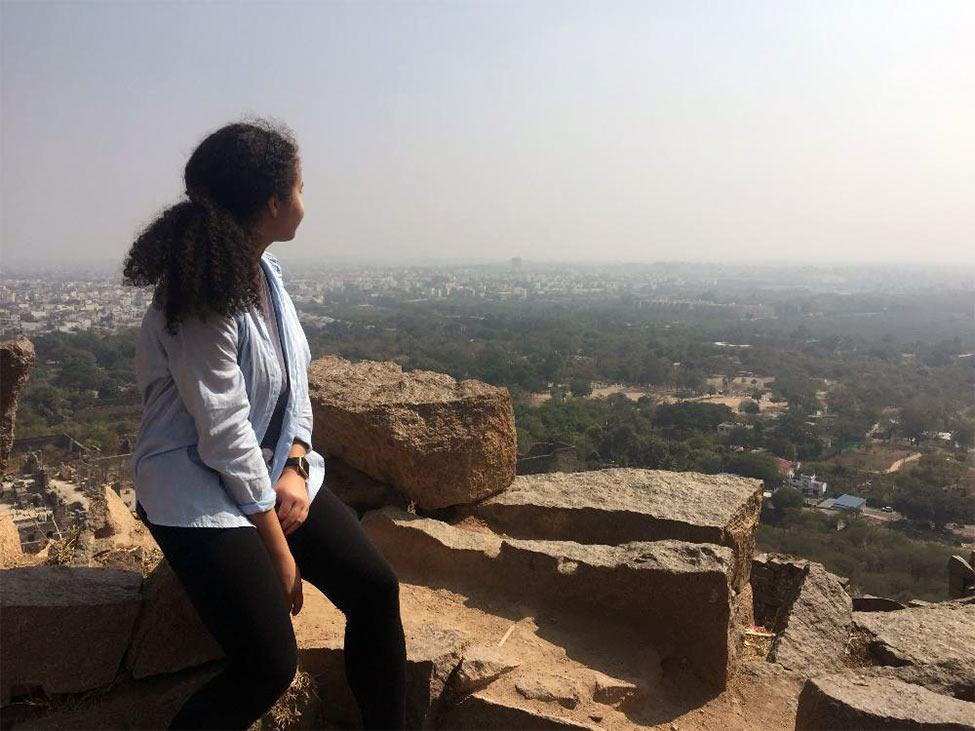
Moreover, Pace’s commitment to a global perspective in psychology is evident in its faculty members’ close ties to international resources such as the Psychological Coalition of the United Nations. Through these connections, students gain access to unique internships and networking opportunities that broaden their horizons and deepen their understanding of psychology's global impact.
But it's not just about the coursework; it's about the entire experience. Pace University boasts state-of-the-art campus labs and fosters connections to premier training facilities, providing students with unparalleled opportunities for growth and discovery.
In essence, for students at Pace University, psychology isn’t just a subject—it's a journey that spans continents, cultures, and perspectives. By embracing the global mind, students gain not only an international advantage but also a profound understanding of the complexities of mental health and wellness in our interconnected world.
More from Pace
When his wife Kimmi Stephens suddenly had a seizure, Tim Myers, a scientist studying epilepsy, felt his field of study abruptly collide with reality. This shocking moment sent the pair of Pace professors on a winding journey of recovery, resilience, and research, and ultimately to the creation of a new lab on the Pleasantville Campus.
Serving as a peer leader, resident assistant, and volunteer, Psychology major Charlotte MacNeal's diverse experiences and mentorship roles have shaped her journey. With internships in MedTech and impactful research on intergenerational trauma, she credits the supportive faculty and plans to pursue a career in consulting for MedTech companies upon graduation, offering insightful advice to current students.
Jeremiah Williams '23 found his place on campus within the political science department. He cites courses taught by President Krislov and Matthew Bolton as influential in his journey to understanding the political world.
All Hands On The FAFSA Deck
Pace President Marvin Krislov writes an op-ed in the Inside Higher Ed about how colleges, government, high schools and community groups can find a common purpose in encouraging FAFSA completion.
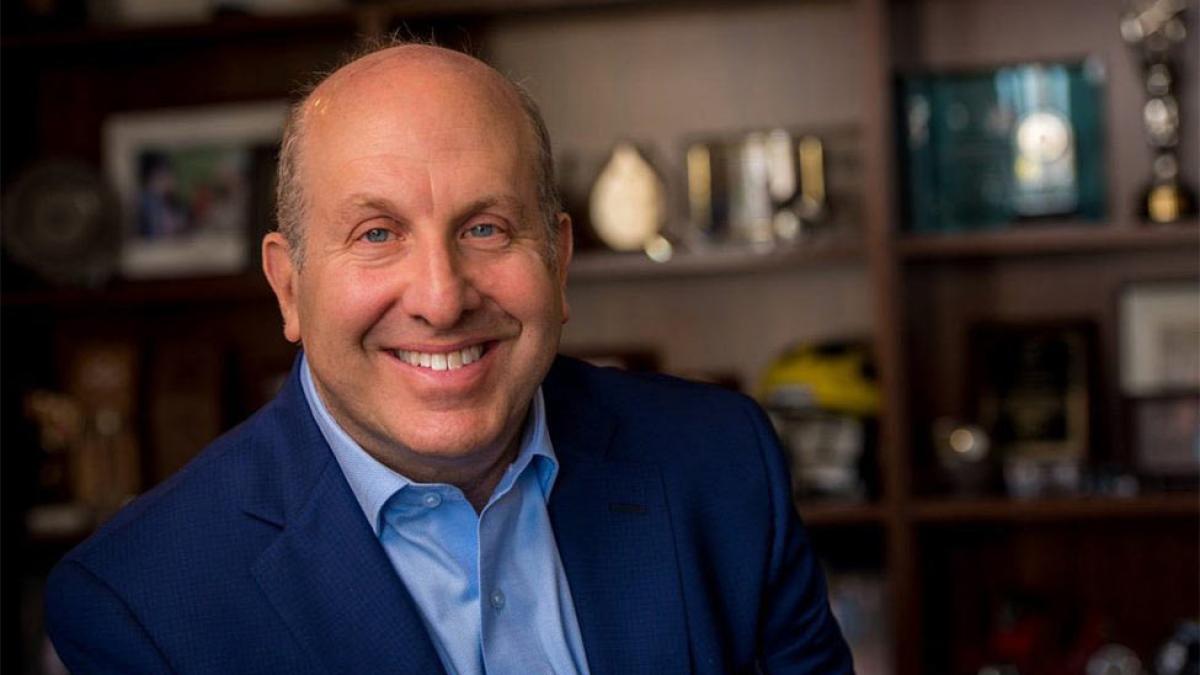
La Música De La Tonelería
Dyson Professors Maria Luskay and Lou Guarneri are leading Pace University’s documentary film team PaceDocs in filming their latest project on location overseas. They are currently in Spain, and are collaborating with a well-known musician and composer, José Buendía Picó, to provide music.
"Openly Impatient": Experts Say "Angry" Judge Put Trump's Lawyers On Notice In Brutal Hearing
Elisabeth Haub School of Law Professor Bennett Gershman speaks to Salon.com about New York Supreme Court Justice Judge Juan Merchan showing "evident exasperation and scorn" as he scolded Trump's legal team over "misleading" claims.
"Judge Merchan showed yesterday that he is going to administer the trial firmly and fairly and is not going to permit Trump and his lawyers to distract, mislead, or play games," Gershman, a Pace University law professor, told Salon, adding that the judge was "openly impatient and intolerant at the way Trump’s legal team was litigating this case."
Time Is Money: Salon No-Shows Cost Stylists Significant Income
Lubin Professor Larry Chiagouris speaks with Yahoo News about how salon no-shows are costing stylists a significant income.
Legitimacy Still A Vital Challenge In China
Dyson Professor Joseph Tse-Hei Lee writes a piece in Taipei Times about drastic events in China that highlight the emerging challenge of legitimacy and the prioritization of state security over the economy.
Student-run businesses. Real life learning.
Every year, students in Pace’s Lubin School of Business generate an impressive $650K in revenue through student-run businesses. That's learning for the real world.
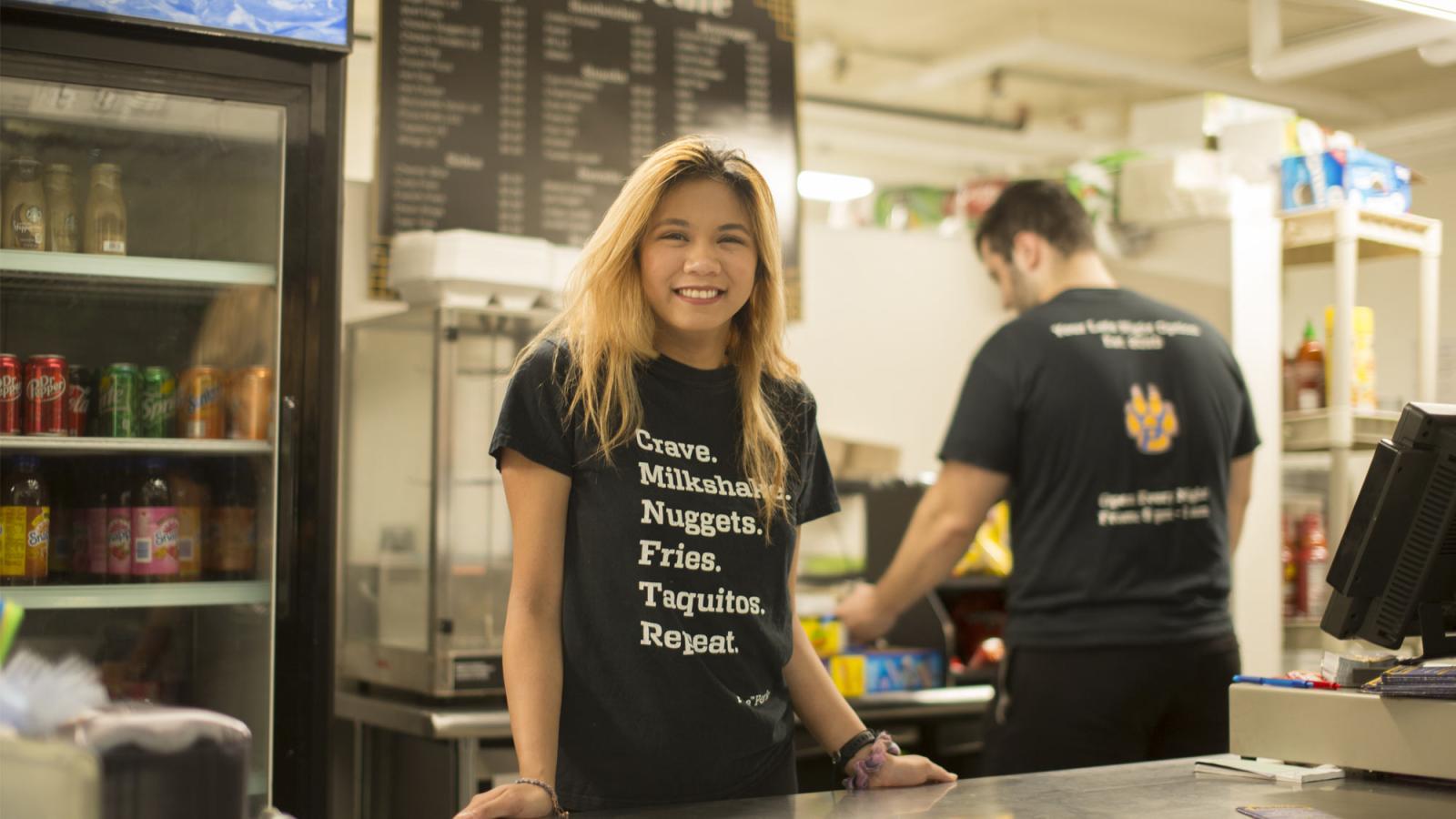
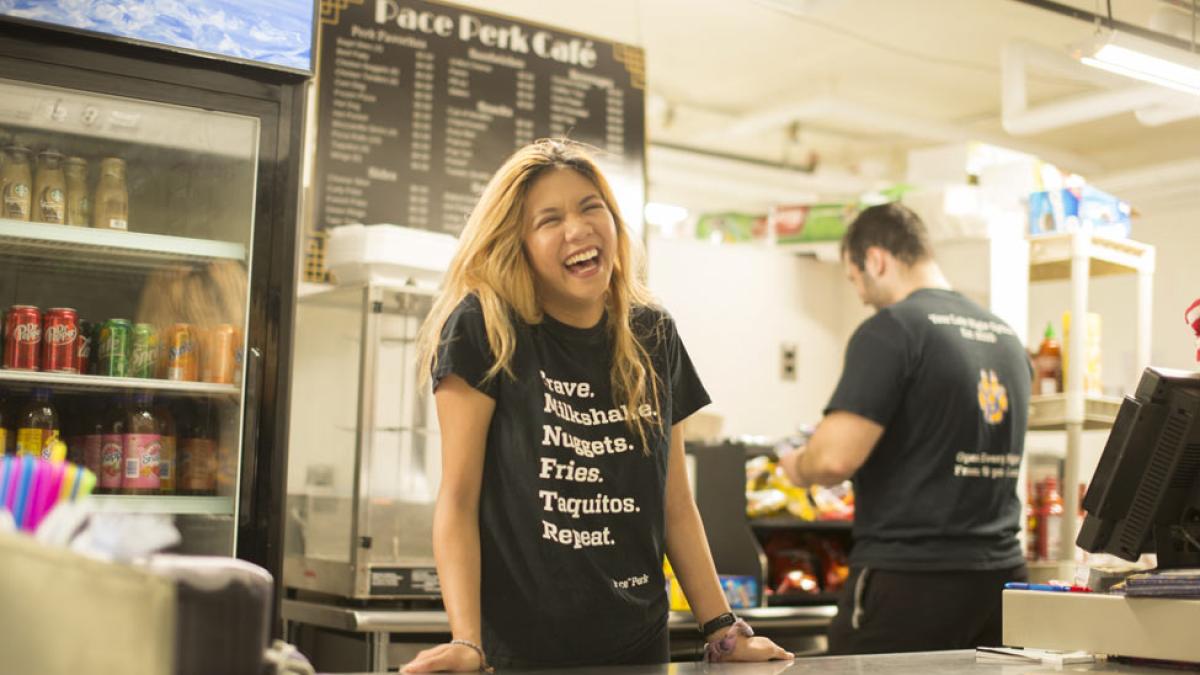
At the Center for Student Enterprise (CSE) within the Lubin School of Business, Pace students are busy at work. They’re not just doing homework; they’re employed at and managing five different student-run businesses on the Pleasantville Campus.
More than 65 students work at the businesses. Xavier Flores ‘25, Business Management BBA and Marketing Management MBA, is one of those who has loved his experiences with the companies.
“I first got involved with CSE in the fall of my first year,” he said. “I applied right after orientation and was hired at Pace Delivers as a driver. By the end of my first year, I was promoted to General Manager.” Pace Delivers, founded in 2017, provides food delivery to students from local restaurants.
Xavier continued, “Going into the Spring 2024 semester I will be the General Manager of Pace Perk. When I first started, I had so many questions about how the business operated, and over the past three years, I have been able to answer all the questions I had.”
Working as the General Manager of Pace Delivers gave Xavier an opportunity to learn skills he might not have otherwise picked up from his classes. He says that attending board meetings improved his public speaking skills, helping the marketing manager gave him experience with Canva, Excel, and Instagram, and collaborating with the CFO gave him experience with QuickBooks. “I have learned and gained as much as I could through my time spent at CSE, but I will use all of these skills. I think it will give me a leg up going into my career because being part of and managing a student-run business is something that very few college students get the opportunity to do,” he said.
“My experience working for Pace Mart has been truly a blessing,” says Pace Mart Senior Marketing Manager and Lubin BBA student Joseph Ingles ’25. “My hard skills and soft skills have enhanced greatly. Running a business like Pace Mart, sometimes things come up out of nowhere and you just have to adapt to the situation at hand. That experience has made me stronger and prepared for what is to come.”
Maggie Glynn is another student who can testify to how working at a student-run business has impacted her experience at Pace. Maggie ‘26, Public Accounting BBA and MBA, is the Chief Financial Officer of Pace Fit, the healthy snack bar located in Goldstein Fitness Center. “I have gained so much real-world experience from the CSE,” Maggie says. “I was drawn to Pace for the internship opportunities, but little did I know I would gain a deeper understanding of the workforce and what I want my role to be from working on campus. Working at Pace Fit allowed me to get real-world accounting experience as a sophomore. I learned what I love about the profession and where I can see myself continuing after graduating.”
She adds that she has gained invaluable technical and soft skills between managing a team, problem solving, and handling finances, “I learned how to prepare, analyze, and present financial statements for board meetings. I learned the value of communication, compromise, and leadership.” Maggie insists, “This continues to be a skill that sets me apart from other candidates when interviewing for accounting internships.”
All of the student managers tell me that when they go for interviews for internships or full-time jobs that all the interviewer wants to ask them about is their position at the student-run business.
Kathryn Winsted, PhD, is the director of the Center for Student Enterprise. She has a deep understanding of how experiential learning enhances what students do in the classroom and helps them discover what really matters in the world of business. Winsted has acted as the advisor to all five of the student-run businesses since they first opened in 2010, and has helped students succeed through different challenges, including COVID-19. Throughout the years, she has seen students thrive in their roles and launch into careers they feel passionate about.
“All of the student managers tell me that when they go for interviews for internships or full-time jobs that all the interviewer wants to ask them about is their position at the student-run business,” Winsted said. “My favorite story is when the student who was one of the original founders of Pace Mart went for an interview at J.P. Morgan, she was able to answer the situational questions with real experiences she had at the business she was running. She was hired on the spot.”
Beyond seeing students find success in their careers, Winsted knows that the students “learn so much more in their courses when they use it in running the businesses and bring that practical experience to their learning.” She hopes that they learn beyond classroom concepts as well, saying that there are many opportunities to practice handling conflict and problem solving, aiding them in becoming adaptable and finding self-motivation.
Both Xavier and Maggie said that they would recommend interested students to get involved. “If any Lubin students are hesitant about joining a student-run business, do it!” Maggie shared.
More from Pace
Saloni Pasad has taken advantage of everything Seidenberg’s Human Centered Design program has to offer; including working with the NYC Design Factory, earning her a trip to Switzerland to explore how today's technology can provide tomorrow's food.
Meet Cyber Range: Pace’s new, state-of-the-art facility designed to give students a collaborative, practical immersion in tackling real-life cybersecurity threats, all in real-time.
Pace student and UN Millennium Fellow Lucie Belle Flagg ’24 channeled both her frustrations and her energy into bringing greater awareness of hidden disabilities to the Pace Community. Through her collaborative work, she’s helped make Pace the first university in New York to officially launch the Hidden Disabilities Sunflower program.
Can A New Relationship Survive Mismatched Texting Styles?
Dyson Professor Leora Trub provides expert insights to The Age Australia on the potential challenges that arise when individuals in new relationships have different texting styles.


